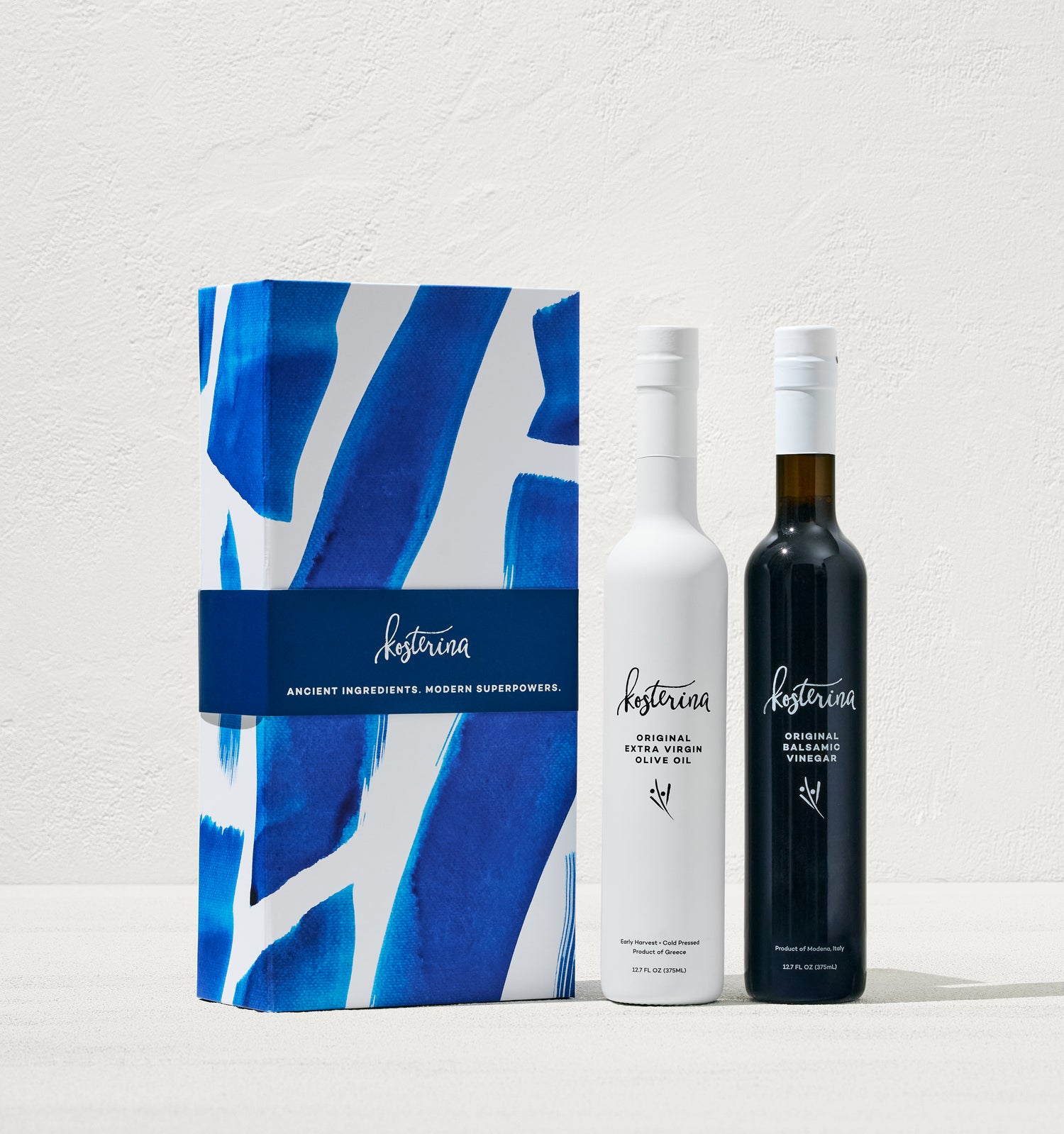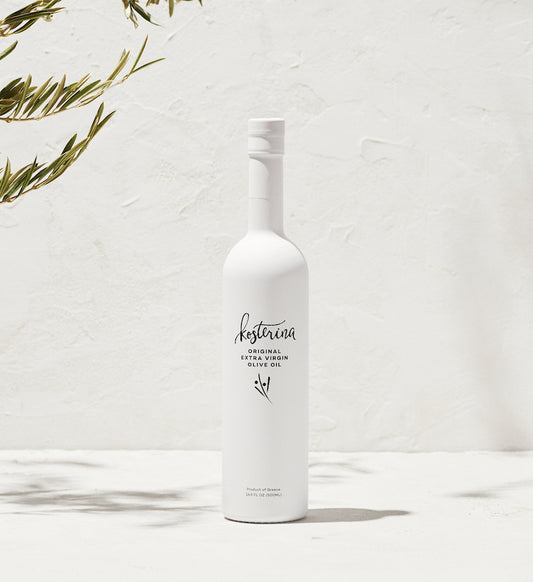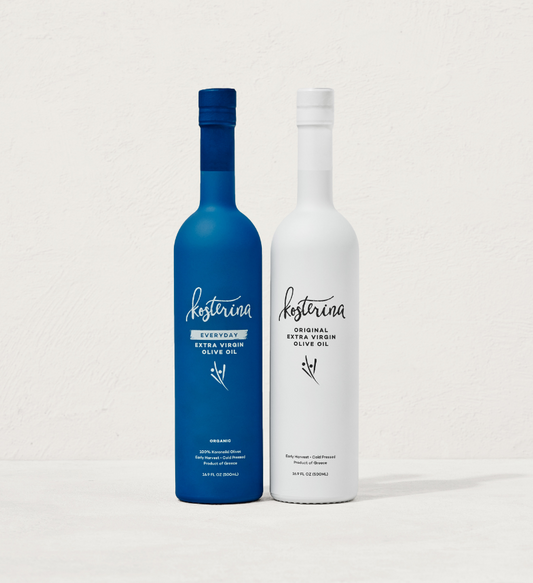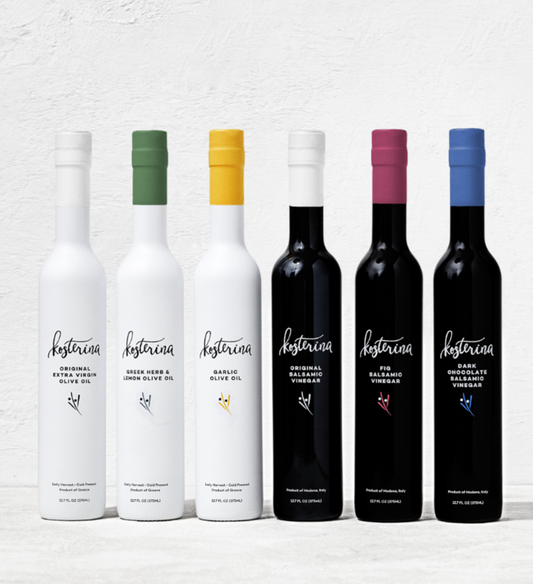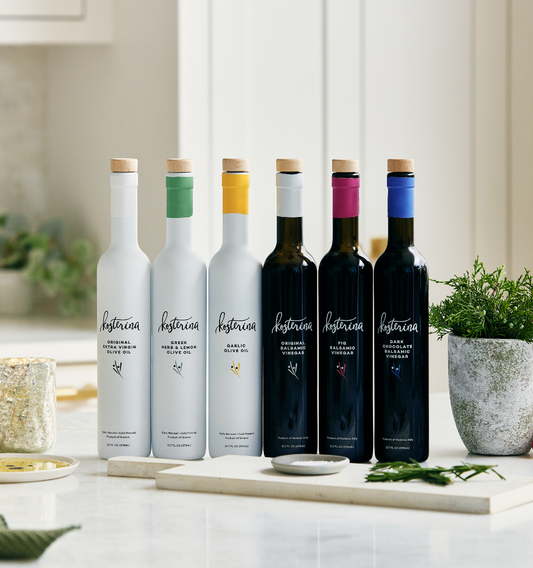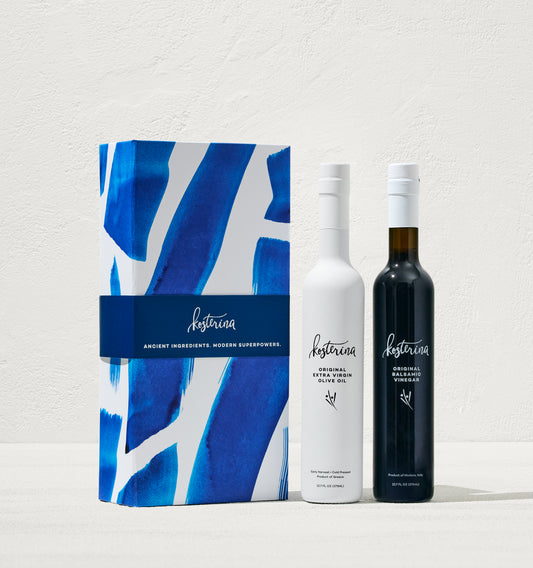Learn
Our Son's Baptism

The ancient Greeks loved olive oil. Homer called it “liquid gold” and Hippocrates, widely regarded as the Father of Medicine, called it “the great healer”. It’s been used for thousands of years as a delicious food, as healing medicine and as cosmetics for skin and hair.
Olive oil also plays a key role in the Greek Orthodox faith. This past weekend, we were blessed to be able to baptize our son, Tommy (or Athanasios in Greek). Although it was a Quarantine-style occasion (we only were able to gather immediate family instead of our typical 200-person celebration), I was struck by the importance and central role of extra virgin olive oil. You can see some photos on our Instagram page here.
A Greek Orthodox baptism, as in most Christian religions, signifies that the child has become part of the Orthodox faith. It’s a holy sacrament, just like communion and marriage. There are many rituals that take place during the baptismal ceremony but, one of the most important is anointing the baby with olive oil. The Godparents, or selected spiritual guides, cover the child with extra virgin olive oil head to toe. Why? In Greco-Roman times wrestlers used to cover their bodies in olive oil to be slippery in the hands of their opponent. In baptism, olive oil symbolizes the protection that Christ will provide to the child to elude the grip of sin. The Church is essentially preparing the child for any challenges that lie ahead in life. And fortunately for our Tommy, he’ll have lots of extra virgin olive oil in his life to help any negative force just slide right off him.
I am constantly humbled by the power of this truly medicinal, culturally significant, sacred plant. There is so much rich history behind the olive tree and Tommy’s baptism reinforced for me that olive oil truly is an ancient ingredient with modern superpowers.
